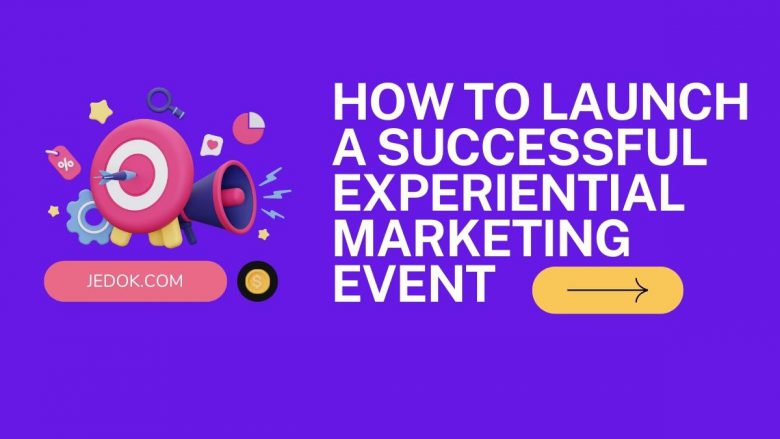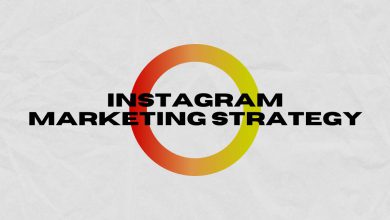
Running an effective experiential marketing event requires a lot of effort, knowledge, and endurance. Efforts for experiential marketing are distinct from conventional marketing campaigns. Experiential marketing efforts also referred to as engagement marketing, need the inclusion of components that provide direct customer connection.
These campaigns, according to NVE Experience Marketing Agency, need to be carefully planned, methodically carried out, and well-targeted because your audience and potential customers will have an encounter with your brand. When done well, experiential marketing events allow for a greater level of engagement with the audience since they put your product right into their hands.
For instance, almost 80% of event attendees who participated in a survey reported that the live demonstrations or free samples had a good effect on their perception of the business and influenced their purchasing decisions.
Although each experience marketing event has its own unique requirements and objectives, the strategy and planning phases are crucial to nearly every experiential marketing campaign. It’s crucial to take action to make sure the launch of your event is flawless and functional on a basic level. The five suggestions listed below will help you begin your experiential marketing event successfully.
Start Planning Early
Experiential marketing is a powerful tool that can help businesses connect with consumers on a personal level. But, with so many moving parts, planning an experiential marketing event can be daunting.
Here are a few tips to help you get started:
- Define your goals. What do you want to achieve with your event? Are you looking to generate buzz, drive sales, or build brand awareness? Keep your goals top of mind as you plan your event.
- Identify your target audience. Who do you want to reach with your event? Once you know who your target audience is, you can start to think about what type of experience will resonate with them.
- Choose the right venue. The venue you select will play a big role in setting the tone for your event.
Create A Budget
If you’re planning an experiential marketing event, you’ll need to create a budget. This can be a daunting task, but there are some simple steps you can follow to make sure you don’t overspend.
First, determine what your overall goal for the event is. Are you trying to increase brand awareness? Drive sales? Generate leads? Once you know what your goal is, you can start to allocate your budget accordingly.
Next, start itemizing all of the costs associated with the event. This includes everything from venue rental to marketing materials to food and drink. Don’t forget to factor in any discounts or coupons you may be able to take advantage of.
Finally, give yourself a realistic timeline for planning and executing the event.
Incorporate Online & Offline Advertising
As the world of marketing continues to grow and change, so too do the strategies that businesses use to reach their target audiences. One trend that is becoming increasingly popular is the incorporation of online and offline advertising, also known as experiential marketing.
This type of marketing takes traditional advertising methods and combines them with interactive experiences that allow consumers to engage with the brand on a personal level. For example, rather than simply seeing an ad for a new product, consumers might be able to try it out for themselves at an event or in a store.
This approach has been shown to be highly effective in creating long-term relationships with customers and increasing brand loyalty. Additionally, it can be used to reach new audiences who may not be familiar with the brand.
Understand Customer Wants
As a business owner, it is important to understand what your customers want. This can be done through research, surveys, and customer interviews. However, one of the best ways to understand customer wants is to experience what they experience. This is where experiential marketing comes in.
Experiential marketing is a form of marketing that involves creating an event or experience for customers to interact with. This can be anything from a pop-up shop to a concert. The goal of experiential marketing is to create an emotional connection between the customer and the brand.
There are many benefits to using experiential marketing, including building brand awareness, generating leads, and increasing sales. However, the most important benefit is that it allows businesses to understand their customers on a deeper level.
Define Your Brand Clearly and Efficiently
As a business owner, it is critical that you define your brand clearly and efficiently. Your brand is what sets you apart from your competitors and should be reflected in everything you do, from your website to your marketing materials and even your customer service.
One way to ensure that your brand is well-defined and efficiently communicated is through experiential marketing events. These events allow you to interact with potential and current customers in a way that is memorable and engaging.
By taking the time to clearly define your brand and communicate it effectively, you will be able to set yourself apart from the competition and build a loyal customer base.



One Comment